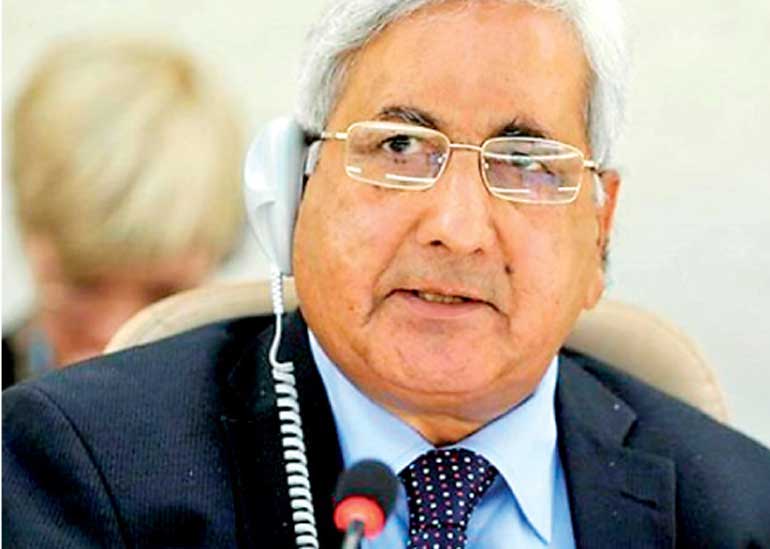Wednesday Feb 25, 2026
Wednesday Feb 25, 2026
Tuesday, 26 April 2016 00:02 - - {{hitsCtrl.values.hits}}
Dr. Kishore Singh, United Nations Special Rapporteur on the Right to Education since August 2010, has long standing professional experience in the field of the right to education. He has presented annual reports to the Human Rights Council and the United Nations General Assembly on areas of priority concern for the international community and has long contributed to the development and promotion of education as an internationally recognised right.
He spoke to UNESCO on the occasion of Global Action Week which this year takes as its theme Funding the Future. UNESCO is committed to the vision of education as a human right and a global common good with access for all. While the provision of education is the primary responsibility of the state, Public-Private Partnerships play an increasing role, as outlined in the Education 2030 Framework for Action.
Following are excerpts:
 Dr. Kishore Singh
Dr. Kishore Singh
Q: Education is a public good and a human right. What must governments do to ensure this?
A: Education is a fundamental human right of which both the individual and society are beneficiaries. It is a public good and must be enjoyed by everyone, everywhere. The Universal Declaration of Human Rights clearly establishes that everyone has the right to education. No one should remain deprived of this inalienable right because of social situation, economic status or property. Discrimination or denial of access to education based on these grounds is prohibited in human rights law. Education as a foundation for human development is of paramount importance for common well-being, and this is contingent upon ensuring that the concept of education as a public good, embodied in the Incheon Declaration (May 2015), is not compromised but fully respected.
As I have stated in my reports to the United Nations General Assembly and to the Human Rights Council, governments must protect education against forces of privatisation and safeguard it as a public good.
Q: What must be done to ensure the necessary funding is found for SDG4?
A: It is regrettable that at a time when governments have adopted the Incheon Declaration with a commitment to SDG4, one witnesses the trend towards disinvestment in education. This is a matter of serious concern as governments seem to be abandoning their core responsibility to provide public education of good quality free of costs to every child. The fast growing presence of the private sector in education is inducing governments in many developing countries to disinvest in education.
We must, therefore, bring to the fore the stipulation in the Incheon Declaration which encourages governments to commit between 15 and 20% of national budgets, or between 4-6% of GDP for education. Public investment in education as high development priority is not only a legal but a moral obligation of governments.
Q: What are alternative funding strategies?
A: Governments can resort to many other modalities for enhancing national investment in education. They can mobilise resources from community and parents’ voluntary contributions. They can levy a commercial tax for funding education. They can increase tax to GDP ratios, and stop giving tax incentives, including long tax holidays to companies.
Philanthropy genuinely dedicated to social causes is another device of key importance for mobilising resources for education. Educational establishments for philanthropic purposes which are not profit driven but promote education as a social good are valuable for generating social support for education. Besides, corporate social responsibility can also support education development and must be fully harnessed.
Q: What role do public-private partnerships play in funding education?
A: When other stakeholders complement a government’s efforts for the provision of education, they must in all circumstances demonstrate societal interest in education. Governments must ensure that norms and principles underlying the right to education as an internationally established right are fully respected and education does not become devoid of social responsibility. This should be the guiding spirit in entering into public-private partnerships. Partnerships in the case of education have a clear common purpose: to promote human development and social well-being. Such partnerships should not become disguised in a way that they foster the ‘for-profit’ education venture.
We must be guided by the Incheon Declaration which reaffirms “the fundamental responsibility” of governments in implementing the future development agenda. It expresses the resolve of governments “to establish legal and policy frameworks that promote accountability and transparency as well as participatory governance and coordinated partnerships.”